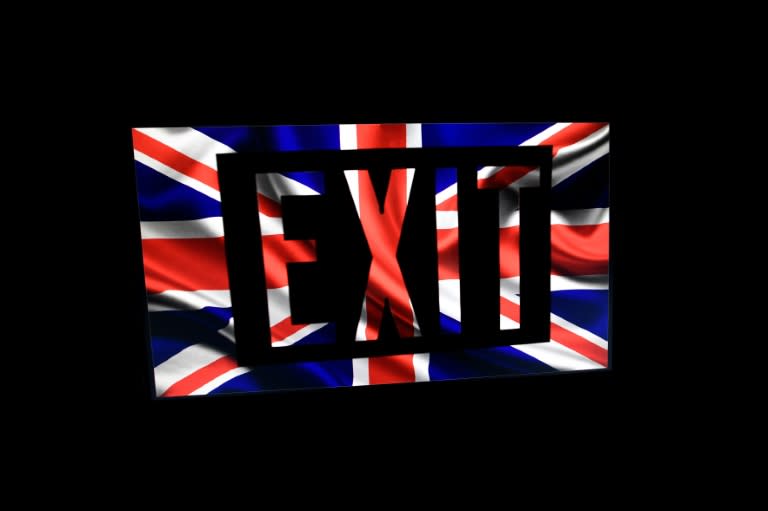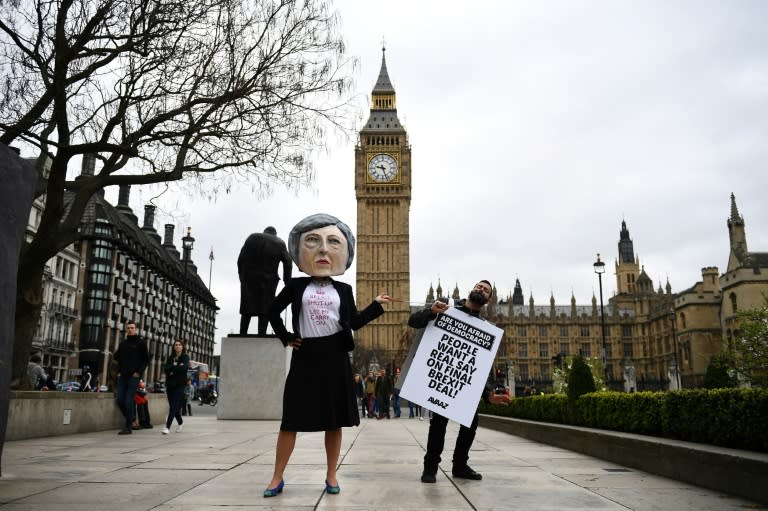EU divorce bill that could sink Brexit deal
As with most divorces, Britain's negotiations with the EU after Prime Minister Theresa May triggered the Brexit process could rapidly turn nasty over money. Brussels is demanding that Britain settle its bill before discussing anything, but London says it must also talk about the future relationship with the EU at the same time. Here are the key questions: - Why is there an exit bill? - The EU says Britain has to meet the financial commitments it made while it was still a member so that the remaining 27 states are not left out of pocket. "When a country leaves the union there is no punishment, there is no price to pay to leave. But we must settle the accounts, no more, no less," the EU's Brexit negotiator Michel Barnier said earlier this month. - How much is the bill? - The European Commission, the EU's executive arm, has set a whopping estimate of 60 billion euros ($64 billion). "It's around that," European Commission chief Jean-Claude Juncker said when asked about the figure, "but that's not the main story. We have to calculate scientifically what the British commitments were and then the bill has to be paid." Officials say however that the two sides will likely agree on a formula for working out how much Britain will pay, rather than a set sum. Paying in instalments is also an option. For their part, British officials reckon the true figure should eventually be closer to 20 billion euros. Agreeing a formula would allow the issue to be "parked" for a while so London and Brussels can get on with settling key issues such as Northern Ireland and the rights of EU citizens. - How will it be worked out? - The biggest chunk of the bill comprises previous EU budget commitments Britain made but which have not yet been paid. With the EU budget working out at 158 billion euros for 2017 alone, this amounts to some serious cash. Even more controversially, the EU wants London to honour promises that have been made on "structural funds" used for projects in newer, poorer member states. It also wants Britain to cover pensions for EU officials. "It's not just about pensions for British officials, it's about pensions for all EU officials," a senior EU official told AFP. Then there are "contingent liabilities" -- possible expenses including contributions to possible future bailouts that Britain has agreed to be part of, in Ireland for example. - Can the UK refuse to pay? - Yes, theoretically. The prospect of demanding a huge lump sum has been viewed as particularly risky as Britain could simply walk away from the entire Brexit negotiations. "It's a risk, obviously. This is one of the more sensitive issues," the senior EU official said. At a summit on March 9, May warned EU leaders that Britain would "not (be) paying huge sums of money into the European Union every year". A recent report by a House of Lords committee said Britain could legally leave the EU without settling its accounts -- while noting that could harm its position in the negotiations. On the other hand, Britain does have a claim on assets as part of the EU that could be offset against its leaving bill, including a share in properties used by EU institutions. This angers some in Brussels. "When you leave a golf club, you don't ask for some of the building -- that's not how it works," a diplomatic source said. - UK-sized budget hole - Britain is one of the largest net contributors to the EU budget, along with Germany, France and Italy, meaning there will be a big hole when it leaves. The shortfall will be between five and 17 billion euros a year, according to a study by the Jacques Delors institute, leaving the remaining 27 with the difficult choice of cutting spending, boosting their contributions or a combination of the two.



